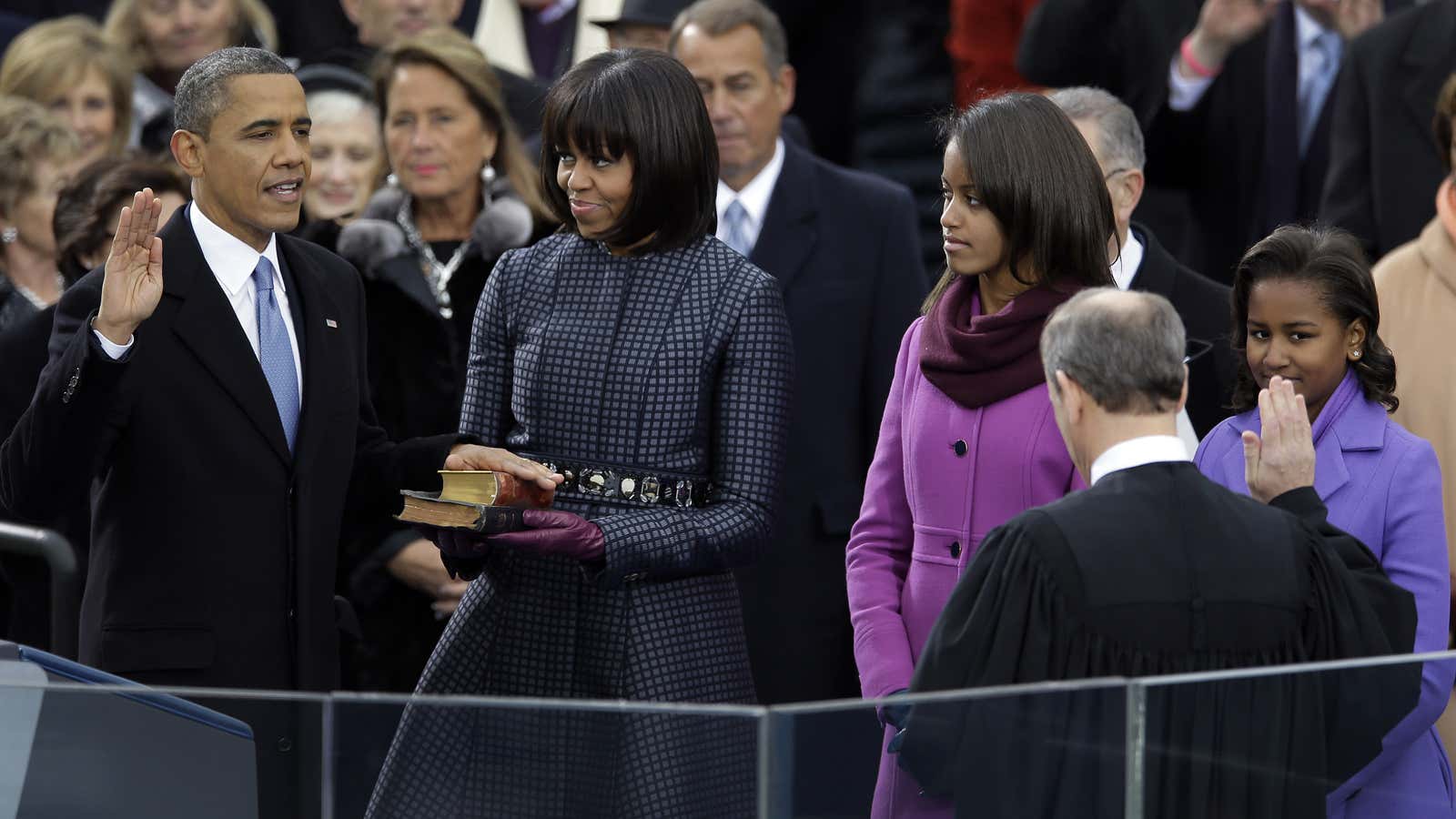Chinese media and bloggers watched with fascination as President Barack Obama put his hand on a copy of the Bible and swore to protect the US constitution.
We’ve reported before on how interested Chinese people have been in US politics lately, ranging from fascination with the spectacle of the presidential race to admiration for open debate. Now that a new generation of leaders are taking the helm in China in March and talking about reform, at least some Chinese are looking at the US and wondering if religion is the key to constitutional democracy.
Obama’s inauguration was a top trending topic on Sina Weibo, China’s massive microblogging site, with over 25 million posts on Jan. 21. Of these, one comment by a Weibo user by the name Wugou1975 was forwarded over 2,000 times, garnering over 500 comments. The blogger posted a photo of Obama taking the presidential oath with Supreme Court Justice John Roberts:
Some Chinese find it unbelievable that this secular country’s democratically elected president was sworn in with his hand on a Bible, not the Constitution, and facing a court justice, not Congress. But actually, this is the secret of America’s constitutional democracy: It’s not just the Constitution or the government’s “separation of powers.” Above that is natural law, guarded by a grand justice. And below is a community of Christians, unified by their belief.
Wugou’s post is part of a larger debate in China over religion and political reform based on China’s constitution. Religion, while legal in China, is not welcomed by the Communist Party (CCP). Last December, authorities arrested over 1,000 members of a Pentecostal sect. The CCP also forbids its members from following any religion, but as many one in six party members practice some form of religion. About 200 to 300 million of the country’s approximately 1.3 billion people practice some form of religion, mostly Daoism or Buddhism.
Advocates of reform have been calling on China’s incoming leader Xi Jinping to start with actually implementing the country’s existing constitution, which includes rights for citizens like freedom of speech, press, and demonstration. But authorities don’t seem so keen. Propaganda officials, for instance, heavily censored an editorial from a liberal Southern Weekly newspaper titled “China’s Dream, the Dream of Constitutional Government.”
In response to Wugou’s post, another Sina Weibo user asked, ”If Chinese officials were to swear an oath of office, what would they swear on?” Another harkened back to the Enlightenment and the idea of natural human rights, asking, “This natural law that [John] Locke spoke of—is this just God’s law?” One blogger linked human rights and rule of law with Christianity, writing, ”This picture embodies the most important traits of protestant Christianity: the power of the divine, the law, humans, and citizens.”
Others were doubtful that religion itself has the saving power a country needs. One said, “Americans believe they can’t live without religion or faith, but morality can be distorted…It’s better to rely on a political system.” Others mocked American religiosity, with one blogger commenting, “Just as our beloved American dollars say: ‘In God, we trust.'”
Still, a few Chinese Christians appeared vocal on Weibo. One lawyer who describes himself as Christian in his profile wrote, “I believe China will someday have a day like this. China’s head of state will stand in a constitutional court, in front of a court justice, with their hand on a Bible.” Another blogger responded, “I hope. Amen.”
